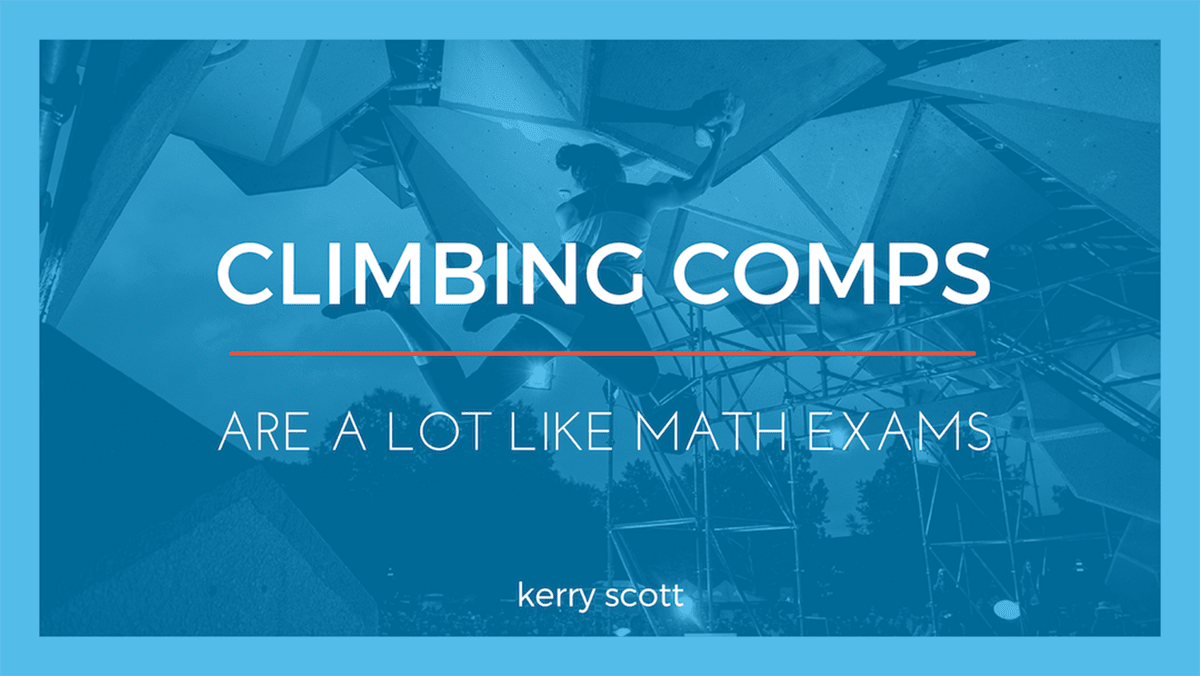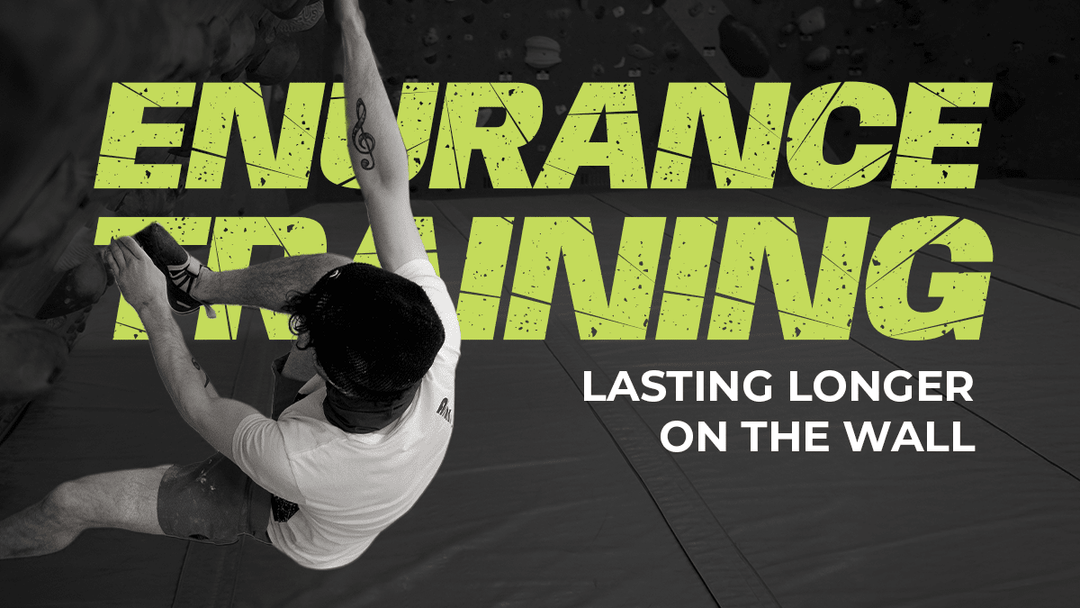Climbing Competitions Are a Lot Like Math Exams

Climbing is inherently a very metaphorical sport. Climbing mountains, overcoming challenges, reaching new heights… it’s all there. The weird thing is that it is in mathematics as well, and it is without a doubt in everything else someone could be passionate about. What exactly is ‘it?’ The process. The highs, the lows, the hard work, the doubt, the ‘almost’s’, the frustrations, the successes, and, most importantly, the failures.
Learning About Failure
One of my favorite activities is making connections between the two biggest parts of my life – climbing and math. In all honesty, it is not an even split. I spend significantly more of my time working towards my climbing and coaching goals, but mathematics is what I focus my energy on when I am not climbing. The two of them combined help me stay sane by teaching me about failure.

I will never forget the day I sat attempting to hold back tears in Professor Metcalfe’s office. I had received a whopping 27% on the first Real Analysis exam, and I went during his office hours expecting him to tell me that I was not cut out to be a math major. This was the first time that I felt helpless in school. Prior to the exam, I went to his office hours twice a week, studied class notes, and attempted to prepare the way I usually prepare for tests. When this still resulted in a failing grade, I was shocked, confused, and unsure of how to move forward.
Rewind to before the exam. Real Analysis is a proof-based class, so I spent many nights reciting precise mathematical definitions and memorizing theorems. I went to office hours twice a week to go over questions I had from class and for help completing homework assignments. I thought I had a grip on what was going on in the class, but when I opened the exam I quickly realized I did not.
The exam consisted of 4 statements that we had to prove in 50 minutes. I did not know how to prove the first one. Or the second. Or the third. And I coulda-shoulda-woulda done the last one, but I’ll get to that later. I panicked to say the least.
Instead of focusing on all the definitions I had learned and trying to apply them, my mind was clouded with doubt, frustration, and anxiety. It’s hard to “Prove that the set of all finite subsets of a countable set is countable” (yes, actual question from my exam) when all you can think about is what will happen if you can’t answer any of the questions. Then I started nervously flipping back and forth between questions, never fully allowing myself to concentrate on one proof. Instead of thinking about all the information I knew, I was constantly thinking about how much time I was wasting.
Then I got to the last question. I remember thinking it was a proof by contradiction, getting all the way to the end, and just not seeing it. I later found out I actually had all the parts to the contradiction written on my exam, but my mind was just too clouded with anxious thoughts to allow me to see it. So I crossed off my entire answer out of frustration and received zero credit for it.
From Math Problems to Boulder Problems
Sound familiar? You guessed it- bouldering nationals. There is no way of knowing what kind of boulder problems the route setters will create, so training consists of learning and practicing as many different types of moves as possible. Then, when the competition starts you turn around and have four minutes to apply all your training to this one boulder problem. Sometimes you may be strong enough to climb it, but you did not see the correct beta. If you do not successfully complete the first climb, you better clear your mind and re-focus for the next one, or you will be just about as screwed as I was on my math exam.
Sure, it’s frustrating to look back on my math exam, or the boulder problem I coulda-shoulda-woulda sent, but there is a lot I have taken away from both experiences.

The mental game is just as important as the physical – When I am competing, I need to focus on the present climb. I have to forget any failures in the past, and focus on being confident in my ability to do the present climb. When I am taking a math exam, worrying about whether or not I will have enough time to complete the exam, or how a failure to do so will affect my grade, will only leave me unable to focus on actually solving the problems given to me.
The best I can do is the best I can do.
The best I can do is the best that I can do. This sounds a little redundant, but let me explain. When I am competing, my goal is to feel like I have given 100%. If my 100% is still not good enough to qualify for the next round, that’s okay. It means I have some more training to do. Maybe I didn’t see the correct beta on the climb, but hey, figuring out the climb is an important part of the competition as well.
Everyone is faced with the same challenge. When my professor is about to pass out the math exams, there is no point in worrying if I should have studied more. The task at hand is to apply my knowledge to the given problems, and if I relax, answer everything I can, to the best of my ability, and allow myself to focus on problem solving, then that was the best I could do and that is okay.
Whether or not I “succeed” I have still learned something. So I didn’t win that comp. Maybe I didn’t even make semi-finals. But it’s not like all my training just disappears… I’m still a stronger climber than I was 6 months ago. So maybe I bombed an exam. It’s not like all that studying was for nothing. I still learned a lot, and I’ll be able to apply that knowledge to something else in my future.
Why is this so important? When you care about something, it’s easy to feel nervous when it comes time to show off what you can do. The reality is that you have already put in all the hard work to prepare for whatever it is you are trying to do. At this moment, there is nothing you can do to change how you prepared. So trust in your training (or your studying), believe in yourself, relax, and enjoy the challenge!

Kerry Scott is a professional athlete and coach at Triangle Rock Club in North Carolina. As you may have figured out, she is also a math major at the University of North Carolina. Follow her on Instagram where she posts rad pics of her climbing pursuits.




